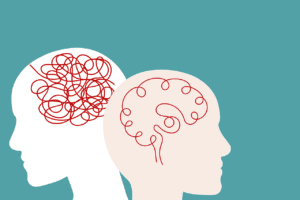
How does someone who suffers from depression balance a work life that feels like it might only be weighing them down further? And what if the workplace is the reason why they’re suffering from this condition?
Depression is characterised by increased sadness, loss of interest in previously enjoyable hobbies, and poor concentration for long periods of time, to name a few symptoms. However, in the workplace, depression can show itself as a nastier creature that incites a person to feel less motivated or passionate even if they’re working the job of their dreams. So why would someone with this condition even work in the first place? The reality is that depression, like many illnesses, is an octopus that has its tentacles in all parts of a person’s life, including work. It’s an unavoidable feeling that reaches across one’s body and mind to often become the primary thing driving their thoughts and actions but, for most people, working is equally as unavoidable.
In the workplace, having a positive attitude, attention to detail, and multitasking are skills that are highly valued. For a person to be chosen for a job, they must display such skills through their interactions with their future employer and colleagues to make a good impression. Let’s suppose a person with depression has gotten the job they applied for and has now started to work. Their next responsibility is to keep the octopus’s tentacles as far out of their work life as they can. But when the symptoms start to show in their actions, and their work becomes disorganised, their disinterest becoming clearer in their day-to-day tasks, the decision to seek help could ward the octopus back to the ocean, where it really belongs. One of the other possible reasons for suffering in the workplace could be organisational toxicity, something that is out of a victim’s control.
Organisational toxicity stems from micromanagement and blame culture as well as other related unethical behaviour. It can cause a person to feel burdened and pressured unnecessarily, placing upon them an impossible expectation they may feel the need to meet. This type of toxicity is not uncommon in the workplace, and many people who are suffering from depression find themselves also suffering in their work, a place they might previously have thought of as being a safe space. The decision to leave here again or to seek help is daunting but ultimately necessary. Choosing not to suffer under unfair management is a brave choice more people should find easier to make.
As a company, Carbon Global understands this and looks actively into better supporting its employees, anchoring itself as a fisherman’s boat to help guide its staff into understanding that asking for help isn’t taboo. Regular check-ins with employees, unlimited therapy, 1-1’s and company-wide discussions around mental health help provide a safe space at Carbon and allow us to establish ourselves proudly as a company that values its employees emotionally outside of the workplace as well.
In conclusion, whether it takes years, a month, a day or a week to ward the octopus away and heal, it can be done. In my opinion, more people should feel secure in this fact, especially in the workplace, where sometimes balancing your mental health and working is just not plausible and therefore shouldn’t need to be. Depression is an octopus, but you can take the small steps to still work and have that safe space without feeling the need to compromise your mental health.
Written by,
Shees Dawood | She/ Her
Team Assistant
Carbon Global

